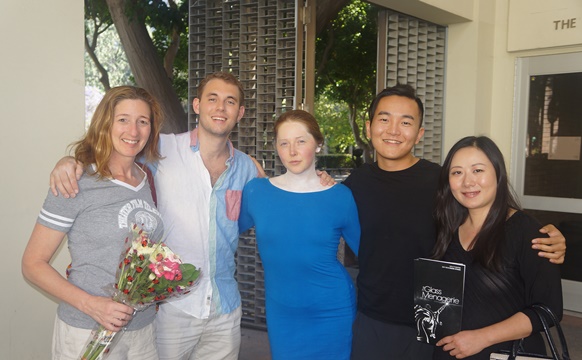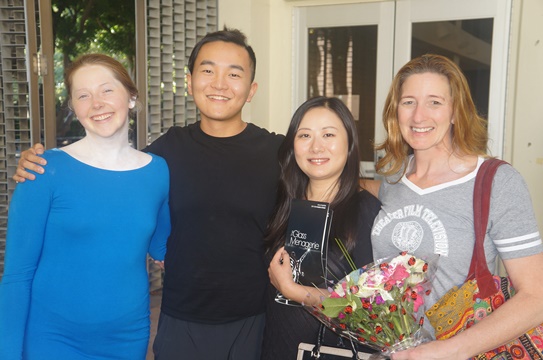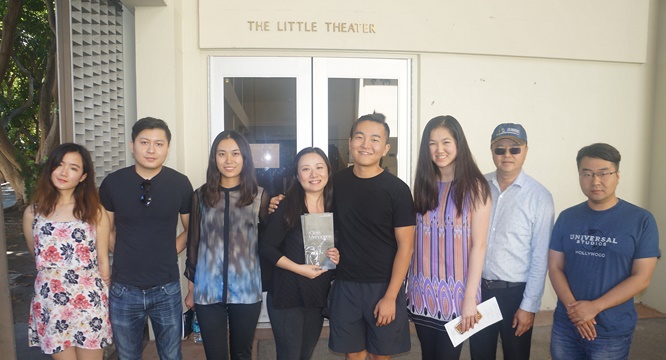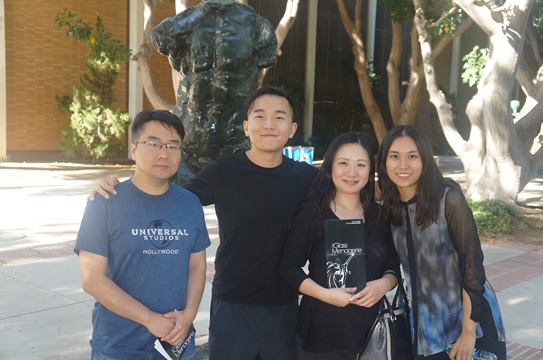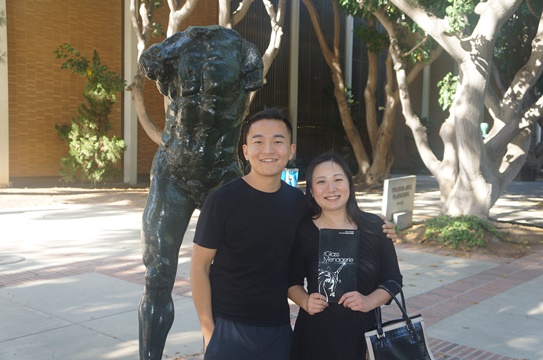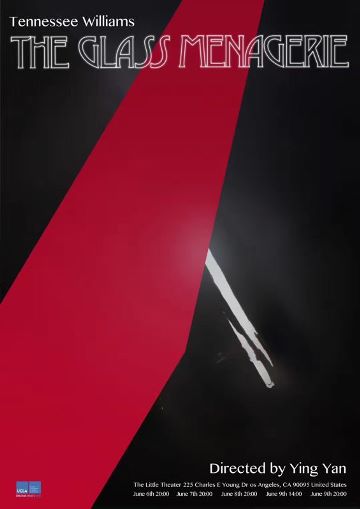The Glass Menagerie 1st time directed by UCLA Chinese Graduate Student Ying Yan
Ying Yan directs Tennessee Williams’ great American classical play, The Glass Menagerie, at UCLA Theatre Film and Television School’s Little Theater from June 6ht to 9th.
The creative team includes UCLA Chinese Graduate Student director Ying Yan, and Beth Lane (as Amanda), Tim Huffman (as James), Jill Galbraith (as Laura), and Composer Evelyn Hu.
The new revival of The Glass Menagerie, starring
This ‘Williams’ autobiographical “memory play” tells the story of a young man longing to escape the narrow apartment where he lives with his faded Southern belle of a mother. His devotion to his withdrawn and shy sister Laura keeps him in place, until the day when his mother demands he bring home a Gentleman Caller to court the young lady.
Beth Lane said: “I think the biggest difference is first of all our location is that rather than in an apartment in St. Louis we’re in the hospital so that’s the major difference. We didn’t change anything with the text or the script it’s word for word exactly how Tennessee Williams wrote it. I think because it’s a memory play, Ying decided that he was gonna take that concept of being a memory for the extreme so that things always seen through the eyes in the memory of Tom, his is worked in a way that it’s probably how he feels even though it’s not the reality of what was. So, these are all the experiences of how he felt when they happened. That’s my interpretation of it. And so, why are we wearing white on our faces and our skin and everything, I think a lot
of it has to do with whether it’s a memory, whether you’re a ghost, whether you’re just a figment of the imagination, whatever’s representing going to the moon, I mean there could be so many things that white can represent whether that’s innocence, loss of innocence, all these things. To me, that’s the biggest difference between a traditional production of it then this one.
I think Ying wanted to take it to a more universal plane, as opposed to the specific. He wanted anyone anywhere to be able to relate and just to connect to the capacity and depth of the motion that these characters go through.
I liked the movement interludes too, because, you know, you’re playing these iconic characters in the Glass Menagerie, who are just holding so much in and there’s so much. For a lot of them there’s this act that they put on that they show the world that, you know, they don’t really say ever who they really are. And in those movement interludes, you get to explore what those relationships and what they’re really like inside. and not just what they show the world but who they really are. that’s something you get to see and explore so that was a really great part of working on he show is doing those movement sections.
really, you know finding the depth with these characters and showing what isn’t shown in the regular scene.
For the young generation: How do you catch the mood at that time?
Jill Galbraith said, It’s a lot of research. It’s tough, but i think what’s so great about the play, too, is that the setting is very specific it’s very very detailed in the play but the themes, there’s a lot of it’s a very universal theme. A very universal concept of feeling trapped and so I think totally it comes off today in the same way it would in the 40s and 50s.
The gift of working with playwright like Tennessee Williams with his script is that he gives us such a beautiful world that even just reading the script at least for me as an actor i’m instantly there. I can instantly see everything. Because of the way that he writes and the way he picks specific words.
I paid a lot of attention to your body language on stage, very specific. Any instruction, any help?
It was all directed very specifically when we could move, when we couldn’t move, what kind of movement we could have. It’s all Ying that you see on that stage. Every single little movement. Ying has a very specific vision in his mind with everything that he directs. He’s a young director who has the mind and the soul of somebody who’s been doing this for decades and decades and decades. He is willing to take things and deconstruct them and kinda burst them open in a way that somebody who gets hired to do this, say the Regional Theatre, well their subscriber base might not want that. They might want to come and see something very traditional. That’s not Ying.
He’s gonna take any piece of literature and make it very specifically the story that he wants to tell as opposed to what his subscriber base might not
necessarily want to tell. I shouldn’t really speak for you, but that’s the sense that i get working with him is that he has such strong convictions about what it is that he wants to say in his material that he will go to all the lengths to do that. And movement, specifically here, is one of the things that he does to help deconstruct this play.
It’s nice to get out of your comfort zone sometimes.
Freom left: Leading Actress Beth Lane, Leading actor Tim Huffman, Leading actress Jill Galbraith, Director Ying Yan, Composer Evelyn Yimeng Hu

